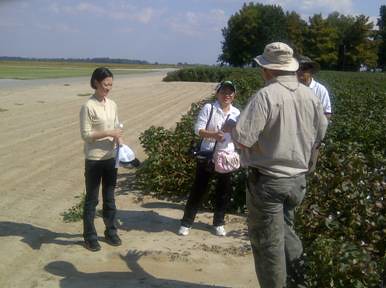USDA’s Agricultural Marketing Service (AMS) recently hosted two examiners from China who were on hand to learn the U.S. system for examining new plant variety applications.
AMS’s Plant Variety Protection Office and the American Seed Trade Association invited Yang Yang and Lingo Gao from China’s Ministry of Agriculture to work to improve global intellectual property protection. The two countries are working toward harmonizing their respective plant variety protection systems.
Yang and Gao spent two months at the Plant Variety Protection Office in Beltsville, Md.
The Plant Variety Protection Act provides legal protection in the form of intellectual property rights to developers of new varieties of plants in the U.S.

The U.S., China and dozens of other countries are constantly developing new plant varieties. Breeders of varieties that are found to be new, distinct, uniform and stable can receive a certificate of protection in order to safeguard their intellectual property. The term of protection is 20 years for most crops, and 25 years for trees, shrubs and vines.
The owner of a protected variety has exclusive rights to multiply and market the seed of that variety. The public benefits as the recipient of lower prices from increased productivity, and from quality food, feed, fiber and other products, that result directly from improved plant varieties.
In addition to operating out of the Beltsville office, Yang and Gao visited universities and private companies that test and develop seeds.



